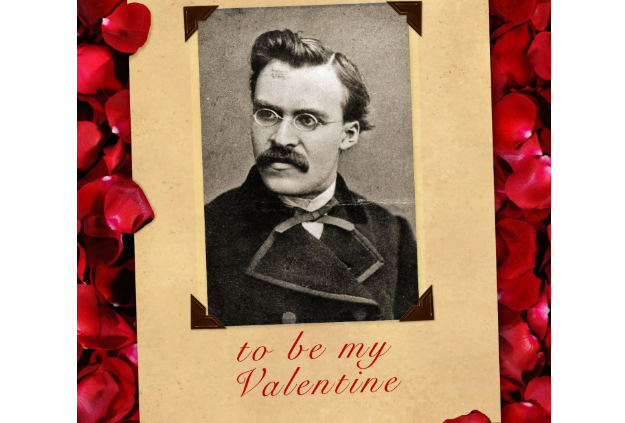The German philosopher Friedrich Nietzsche (1844-1900) is probably not the first person who comes to mind when you think about romantic love. For most of his life, Nietzsche was a solitary and lonely figure.
In Beyond Good and Evil, Nietzsche railed against the evils of women, only to recant all that he’d written a paragraph later. He attempted to win the heart of Lou Salomé, only to have her rebuff his affections. Supposedly he contracted syphilis in a whorehouse.
Nietzsche’s most striking aphorisms about love appear in Thus Spoke Zarathustra—a work that most casual readers find intellectually dense and, in parts, thoroughly incomprehensible. Nevertheless, he wrote so much about love in this work that it could be renamed Thus Spoke Romeo.
Here are a few ardor-filled remarks about philo (love in Greek) that appear in the pages of Thus Spoke Zarathustra:
“I fear you close by, I love you far away.”
“Where one can no longer love, one should – pass by!”
“Whatever I create and how much I love it – soon I have to oppose it.”
“Devise the love that bears not only all punishment but also the guilt!”
“It is night: now do all leaping fountains speak louder. And my soul too is a leaping fountain…
Something unquenched, unquenchable, is in me that wants to speak out. A craving for love is in me, that itself speaks the language of love…
It is night: only now do all songs of lovers awaken. And my song too is the song of a lover.”
“Woman’s love involves injustice and blindness against everything that she does not love… Woman is not yet capable of friendship: women are still cats and birds. Or at best cows… “
Nietzsche liked playfully juxtapose opposites, emphasizing the dyadic nature of love (close-by/far-away, to-love/to-pass-by, create-and-love-it/oppose-it). While the song of the lover was Nietzsche’s, he longed for those who didn’t share his feelings (such as Salomé)—the age-old tragedy of unrequited love. Given how he viewed women (as cats, birds and cows), it’s unsurprising that he was alone and unloved for most his life until his death.
Although Nietzsche might not have been a winner in the game of love, he was still a reflective contestant. To be in love can drive a person to madness. For Nietzsche, though, the cause of his lunacy was probably a case of untreated syphilis.
















Leave a Comment
Your email address will not be published. Required fields are marked with *